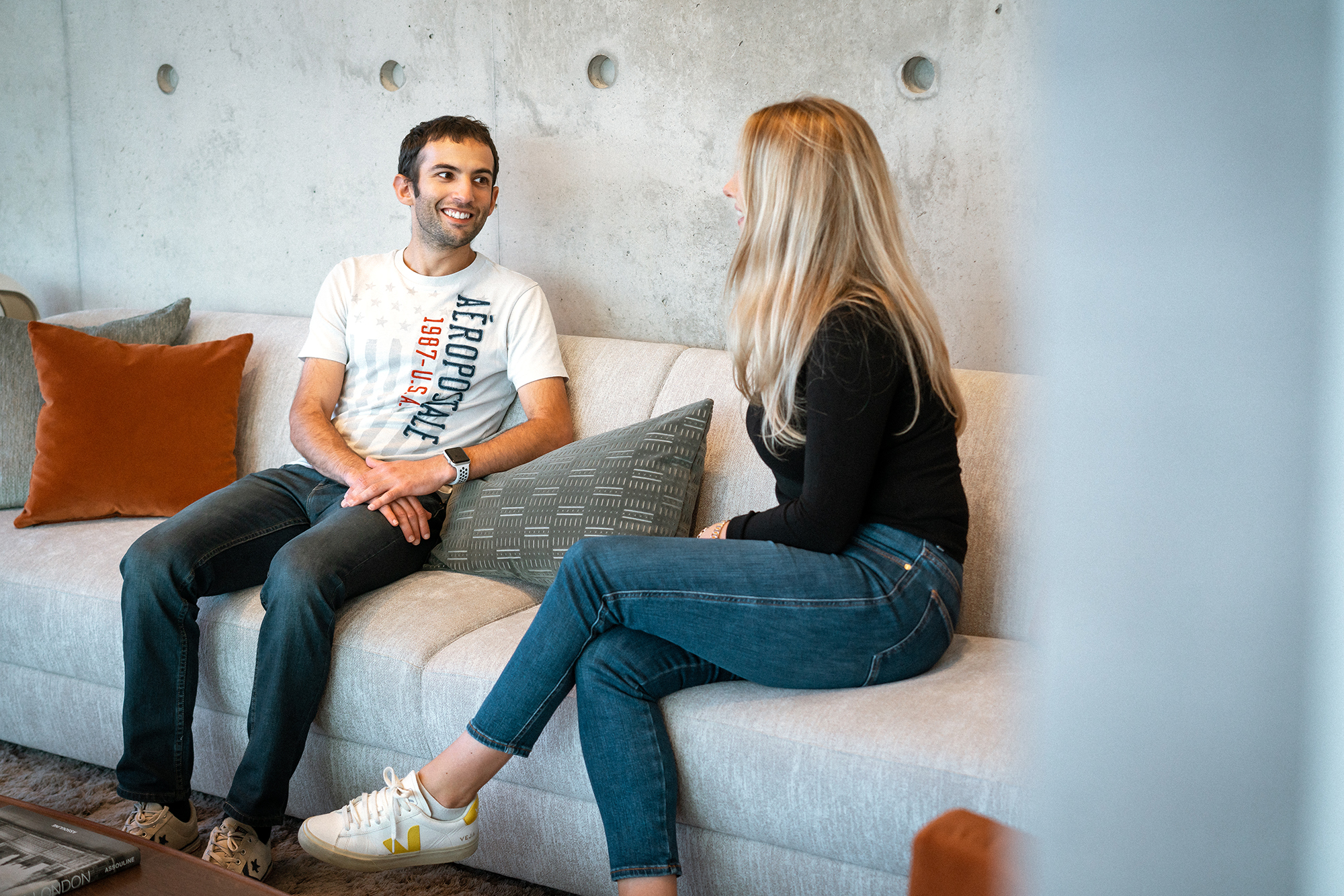Giving feedback to help someone improve is an act of kindness. The relationships you build with your team members are at the heart of your success, as an individual and collectively.
Over the past few months, we've been working hard to evolve our culture to encourage more candid, honest feedback.
Our Performance Management Programme, 'Level Up', includes 360 feedback for everyone in the organisation. During the roll-out of this initiative, our employees told us it would help to have the training and tools to give and constructively receive feedback.
We invited Kim Scott, author of the New York Times and Wall Street Journal bestseller Radical Candour: Be a Kickass Boss without Losing your Humanity, to speak to our team.
Kim shared her framework for building a feedback culture and introduced us to concepts, vocabulary and tactics we could start using immediately.
Fostering a culture of feedback using the Radical Candour framework
Two conditions have to be in place to give effective feedback: you must care personally and challenge directly. Radical candour should be delivered up, down and sideways and should always begin with soliciting feedback. It should be kind and caring.
Caring personally, at its core, is common human decency. It's not getting personal with someone who wants privacy, or oversharing personal details of your own life. It recognises the other person is human and has the same feelings, emotions and oversights as anyone else.
In the same token, radical candour does not open a door for brutal honesty. It's giving your colleague a heads-up so they can improve, get back on track, or move forward more efficiently. But it should always be kind and considerate.
Radical Candour: How to get it, give it, gauge it and encourage it
1. Get it
Ask for it. Have a go-to question like 'How could I be easier to work with?' then wait for the other person to respond, embracing the discomfort. Count to six to stop yourself filling the silence or backtracking. Listen to their response with the intent to understand not to respond. Follow up with questions to make sure you truly understand their feedback.
People take a risk when giving feedback, it should be rewarded, or you'll lose the privilege. The best way to reward it is to thank them and implement the change. If you disagree with the feedback, find the part of it you agree with and acknowledge it. You can ask for time to think about the rest – just make sure you come back to the person once you've thought about it.
2. Give it
To maintain a culture of feedback, praise must be specific and sincere, and criticism should be kind and clear. Praise can be delivered in public, and criticism in private.
Giving feedback should be done immediately and synchronously. It could be a chat while walking back to your desk post-meeting, or a phone call after a remote presentation.
You should state your intention to be helpful upfront, and remain humble – say what you see, ask what they see. You're not the decision-maker on who's wrong or right. Feedback is best received as a 'situation, behaviour, impact' statement – it should never be about personality.
3. Gauge it
After giving your feedback, you should pay attention to the recipient's reaction. Meaning well and caring personally, means you should go into the conversation confident the outcome will be positive.
But, sometimes this isn't the case, and you could upset or provoke your colleague. At this point, you should address their emotion rather than retract your feedback. You can ask 'You seem upset/angry/frustrated, how can I help?' and allow them to respond. Talk to each other about how to do it better.
Another result could be that they don't hear you. Again it would help if you addressed this. You can ask your colleague to tell you what they heard so you can make sure you're both on the same page. Or tell them you don't feel like they've listened. Or you may have to be more direct, but tell them that's what about to happen first – 'I can see I'm going to have to be a lot more direct'.
4. Encourage it
If issues arise in your team or amongst your colleagues, don't let other people talk badly about one another to you. Insist they talk directly. If they can't resolve it together, ask them to come to you together, and be as fair as possible in your response.
Receiving feedback is an essential part of our individual development and growth, but it also allows us to move more quickly and efficiently as a business. It's just one part of creating a space where our staff can take ownership of projects, innovate and push each other forward.

